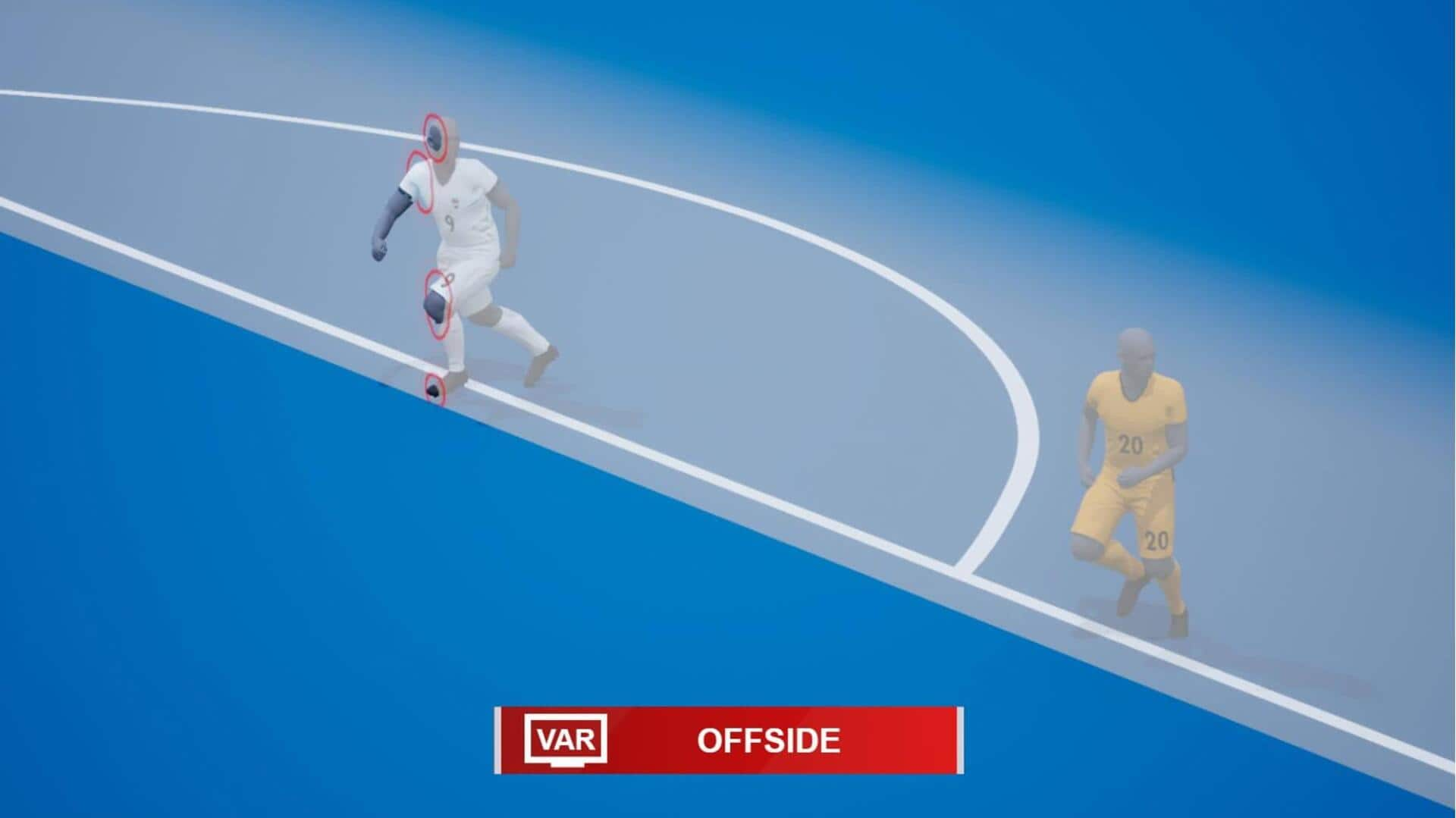
Goodbye VAR! AI-powered iPhones to detect offside in EPL
What's the story
The English Premier League (EPL) is set to revolutionize its offside decision-making process by incorporating technology from Genius Sports. The company plans to use multiple iPhones and machine-learning models to assist referees in making accurate offside calls. This innovative approach aims to address the challenges often faced by officials when players' positions obscure their view, and multiple camera angles fail to provide sufficient detail for precise decisions.
Exisiting tech
What is VAR and why is it being replaced
To overcome the challenges associated with determining offsides, Video Assistant Referee (VAR) systems were introduced to leverage technology and improve accuracy. While VAR systems employ machine learning to track player movements and the ball, their effectiveness has been questioned. Despite years of use in soccer leagues, including FIFA's adoption of advanced limb-tracking and ball-sensor technology, VAR has faced criticism for time-consuming reviews, human error, and inconsistent decisions.
Tech upgrade
Genius Sports's technology to enhance offside detection
Genius Sports has developed a unique offside detection technology called "Semi-Assisted Offside Technology" (SAOT), as part of its GeniusIQ system. This innovative tech is capable of generating accurate 3D models of each player on the field. It aids officials in precisely determining the offside line and understanding players' positions relative to it. To achieve this, the company plans to deploy between 24 and 28 iPhones across the pitch and sidelines for comprehensive coverage.
Cost-effective solution
iPhones to replace expensive 4K cameras in EPL
Genius Sports has chosen to use iPhones, primarily iPhone 15 Pros, as a cost-effective alternative to expensive 4K cameras. The decision was also influenced by the company's familiarity with Apple's ecosystem for tasks like software development. These iPhones will be positioned in pairs on custom rigs, each holding two phones at slightly different angles for optimal area coverage.
Data collection
iPhones to provide detailed data for offside calls
The use of iPhones in this setup is expected to yield between 7,000 and 10,000 data points per player. These data points will be used to create a 3D virtual mesh of each player on the field. Despite potential lighting issues, the system is designed to tolerate missing details due to its extensive data collection capabilities. Additionally, iPhones' ability to record at high framerates and offer local computer vision processing enhances the system's performance.
Data processing
GeniusIQ system to process data for offside decisions
All data collected from the iPhones will be sent to an on-site server for processing by the GeniusIQ system. This system uses computer vision and predictive algorithms to identify individual body parts of players and predict their positions when obstructed from view. The company has trained its system on several seasons' worth of soccer matches, enhancing its ability to determine each player's position relative to others, the ball, and the goalkeeper during offside calls.
Implementation
Genius Sports's technology to be fully implemented soon
The performance of Genius Sports's offside detection technology compared to existing alternatives remains uncertain. However, it is expected to be fully implemented by the EPL before the end of this year and continue throughout the season. The exact date for its full-scale use has not yet been announced. This technological shift marks a significant step in the evolution of decision-making processes within professional soccer leagues.